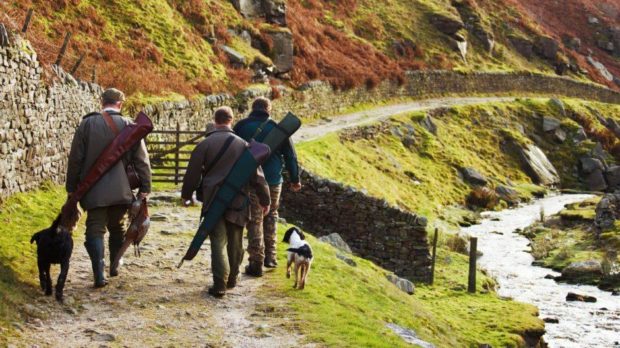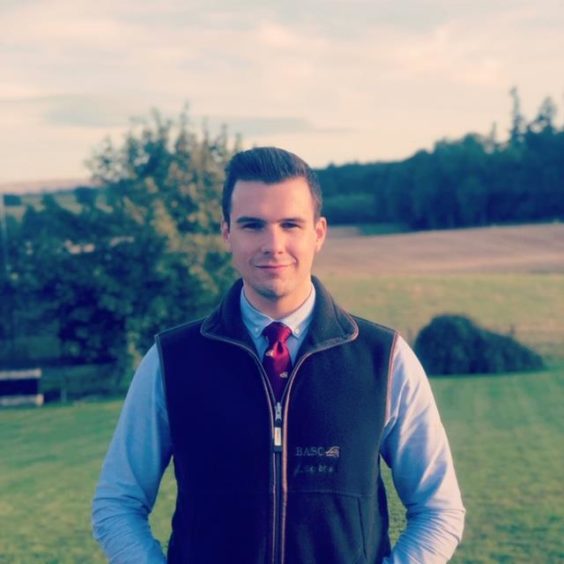The Highland Clearances left an enduring legacy. Even today, centuries on from the forcible removal of people to make way for economically lucrative livestock, they resonate painfully with Scotland’s rural communities.
You can see why. An entire generation of rural dwellers were ostracised, their way of life changed forever. It was an injustice of the highest order.
Things have moved on and thankfully there are people – albeit not enough – who still live and work in Scotland’s remote places, their professions often tied to the land.
Many of today’s professions were borne out of Queen Victoria’s purchase of the Balmoral Estate in 1848 and the widespread romanticisation of rural Scotland that followed.
Country sports became fashionable, aided by the collapse of sheep prices, which led to more land being dedicated to grouse shooting and deer stalking. Professions like game-keeping gained prominence – a new kind of rural worker emerged.
Victorian legacy
Today gamekeepers, ghillies and deer stalkers are the cornerstones of rural communities, occupying some of the places cleared by the money-hungry lairds.
To some, their professions are out of touch with contemporary society. I disagree.
In my experience, rural workers are now catering for an increasingly diversified and cosmopolitan clientele, acting as agents of both tourism and community cohesion.
I speak as someone who was neither upper class, rich nor privately educated – the stereotypical ‘holy trinity’ of the country sportsperson – but a rural Perthshire lad with an interest in nature and countryside pursuits who went on to study the complex relationships between people, the economy and the environment in rural Scotland at university.
Today the sector is thought to be worth around £200m to Scotland’s economy, and is known for generating high levels of local and regional spending.
Meanwhile, the scrupulous management of generalist predators and habitats in the name of shooting has done evidenced wonders for biodiversity, not least vulnerable ground nesting birds.
It is for these reasons that I am both perplexed and saddened by the treatment of the country sports sector – and the wider countryside – by the Scottish Parliament.
What we have seen from Holyrood over the last few years bears a striking resemblance to the asymmetries of power that were evident during the clearances.
Class war under guise of conservation
Examples include protecting mountain hares on the premise of a single, contested study; temporarily banning muirburn by using emergency coronavirus legislation, despite a voluntary cessation being in place; moving to license driven grouse shooting immediately, against the recommendation of an independent review.
I might add eroding deer welfare standards through extensive night shooting and out of season culling and refusing to effectively confront problems associated with high populations of protected species. The list goes on.
There are some in power who are so deeply against the origins of country sports that they refuse to acknowledge the benefits they provide, or the abundance of working-class folk taking part
A class war is currently being waged under the guise of conservation, just as those landlords of the 18th and 19th centuries waged their class war on tenants in order to bolster their own economic prosperity.
The truth is that there are some in positions of power who are so deeply against the origins of country sports that they refuse to acknowledge what they have become, the benefits they provide, or the abundance of working-class folk taking part.
The latest, most comprehensive study into Scotland’s gamekeeping profession is plagued with references to abuse, vilification, misconceptions and an unwillingness to support rural workers.
The strength of feeling was manifested last month in a nationwide rural workers’ protest.
The refusal by some of those in power to meet or hear the views of rural workers is deeply troubling, and is in part responsible for a gradual segregation of rural workers from society.
That is why it is with regret that the British Association for Shooting and Conservation (BASC) has deemed it necessary to call for the creation of a Scottish gamekeeping taskforce in our manifesto ahead of the Holyrood election.
The goal is to tackle this marginalisation by formulating strategies to better support the sector. A chance to reverse the damage that has been done.
Rural communities need support
Its creation is essential if the next Scottish government is to have any chance of reconciling its relationship with the countryside.
How these rural workers came to be and what they have historically stood for are legitimate academic questions. But we cannot let agendas transgress into persecution and marginalisation when these are peoples’ lives we’re talking about.
Rural communities are already fragile. We must support those who remain: include them, consult them, make them part of the solution.
Failure to do so will result in a contemporary, entirely avoidable, Highland Clearances, and it will be Scotland’s shame if we allow it to happen again.
Ross Ewing is the public affairs manager for the British Association for Shooting and Conservation (BASC) in Scotland, the UK’s largest shooting organisation, with more 11,000 members in Scotland and its headquarters near Dunkeld in Perthshire.











